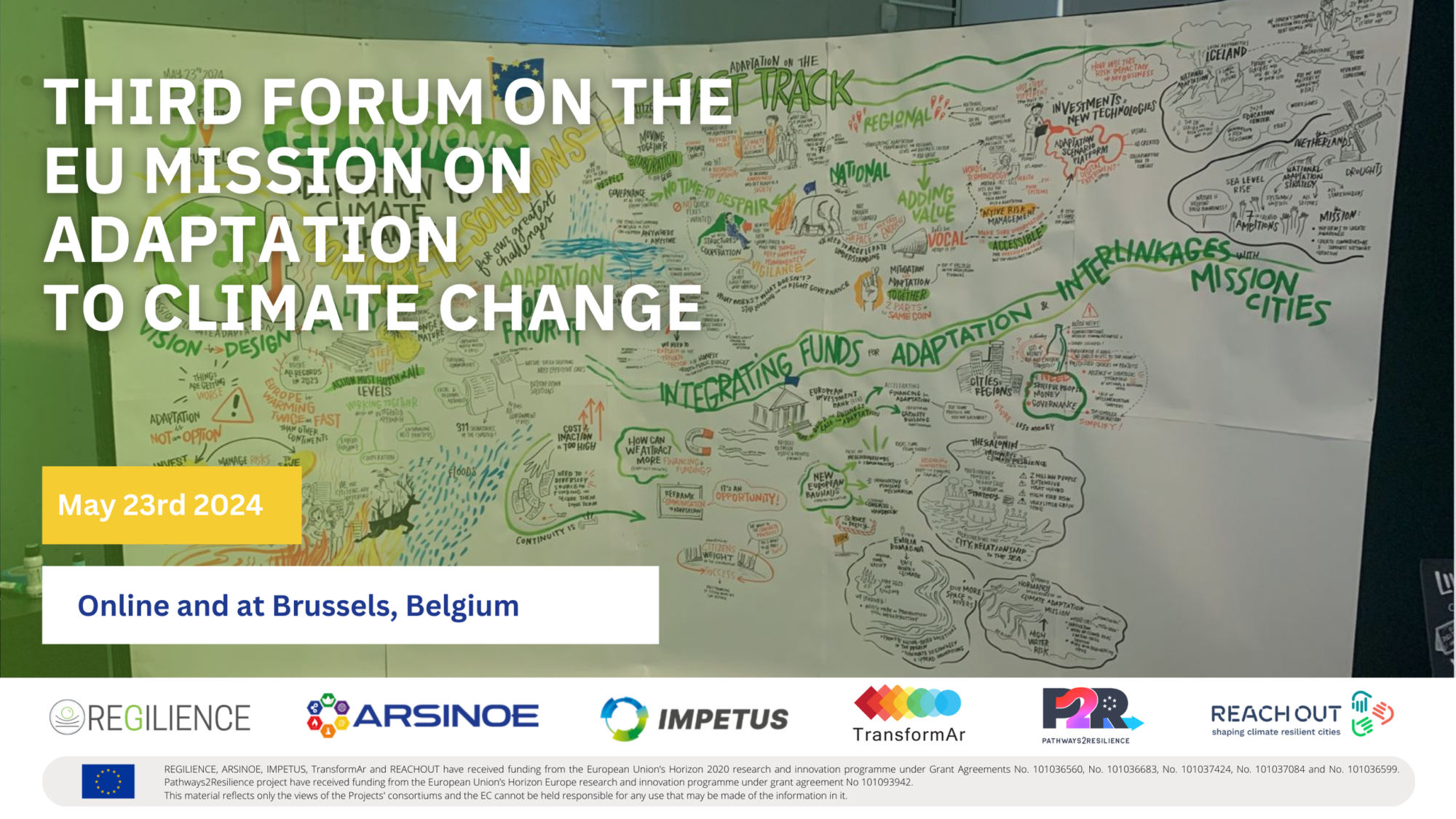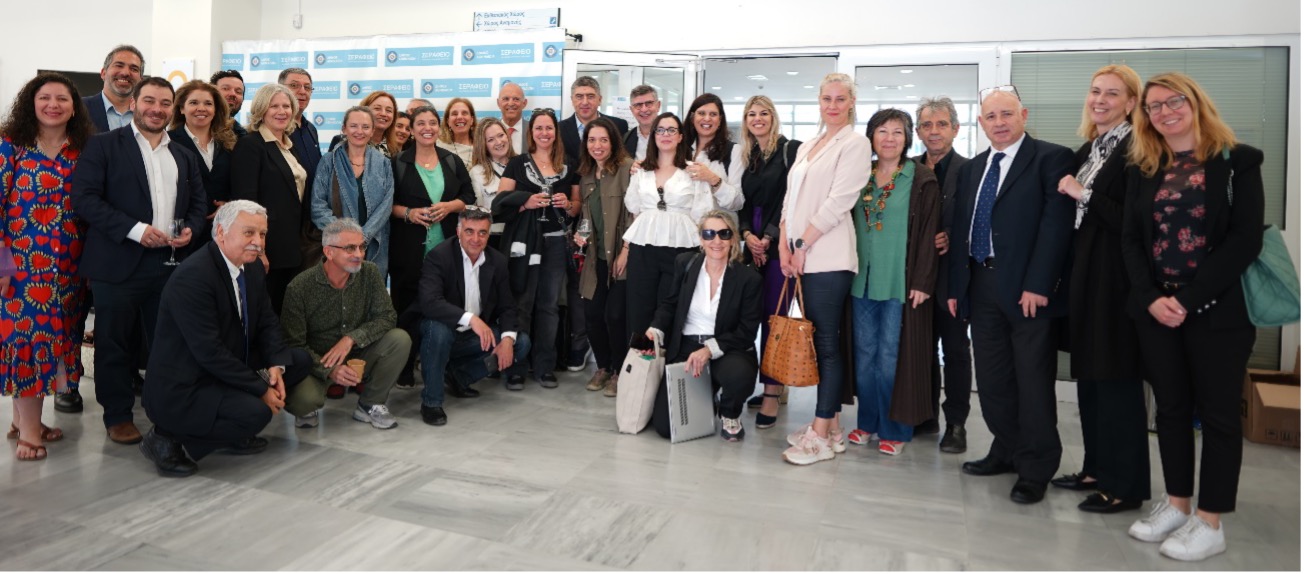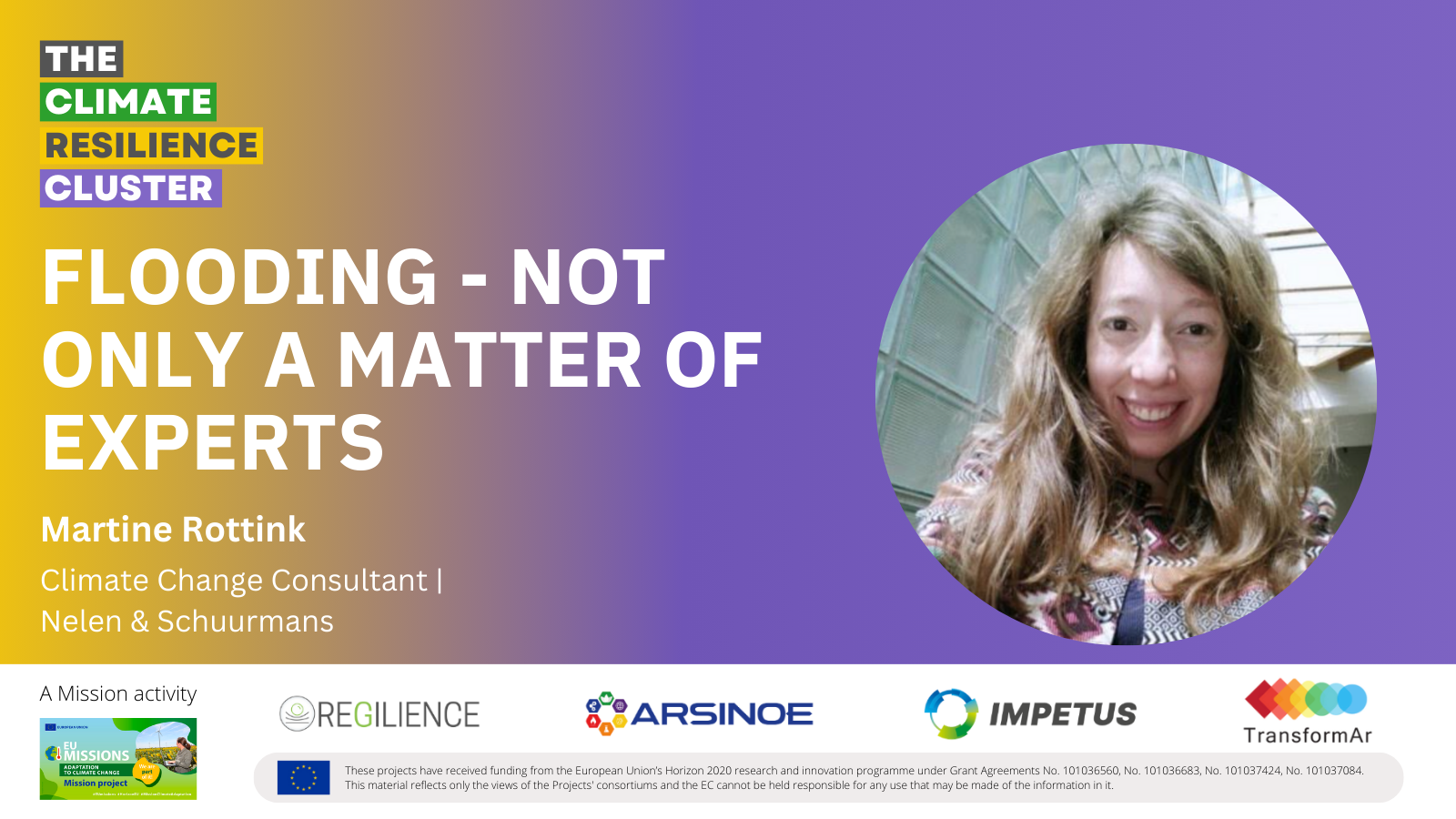
Making Europe climate resilient is a bold and important ambition. Whether or when we become climate resilient is directly related to the success of the implementation of the EU water policy. Climate change adaptation is largely water management, i.e. coping with, and being prepared for too much, too little and too dirty water.
EU water policy in a nutshell
EU water legislation is more than 30 years old. The first set of water directives aimed to improve water quality. Waste water was then barely treated, many rivers were like an open sewer and drinking water from the tap was not safe to consume. The Urban Waste Water Treatment Directive and the Nitrates Directive have been in place since 1991. The Drinking Water Directive was first adopted in 1980. A turning point came in 2000 with the Water Framework Directive (WFD). Until the WFD, the water legislation was dispersed and often focused on one aspect (e.g. wastewater, drinking water).
Under the WFD, an integrated river basin scale approach is required, with the main aim of reaching the so-called ‘good status of water bodies’. More than 100,000 water bodies have been delineated in Europe. Rivers, lakes, estuaries, coastal waters and groundwater are broken down and assigned as water bodies. In analogy with the human body, a good status means a healthy water body. Healthy in EU policy terms means clean and safe water, natural environment, good aquatic life.
The WFD allows authorities to focus the efforts on the actions that improve water status the most at the least cost. If that is agriculture, target agriculture. If the same result can be achieved at a lower cost, by targeting industrial emissions, household waste-water or nature restoration, prioritise that. All actions to improve water body status are bundled in so-called River Basin Management Plans (RBMP’s).
Another batch of EU water policy came into force around 2006-2008. The Groundwater Directive further detailed the requirements of the WFD on groundwater. The Floods Directive (FD) asks for flood risk management. The Marine Strategy Framework Directive (MSFD) aims for healthy seas and oceans, whereas the Environmental Quality Standards Directive (EQS) is concerned with controlling hazardous substances, termed ‘priority substances’. These new directives also brought a new planning and reporting requirement: Flood Risk Management Plans (FRMPs) and MSFD’s Programme of Measures. Groundwater measures are to be integrated into the RBMPs. For water scarcity and drought, there is no legislation on its own.
It has been implicitly assumed that water scarcity and drought are covered by the WFD and the Groundwater Directive, and thus be included in the RBMP’s. Several Member States have developed Drought Risk Management Plans (DRMP), either as standalone reports or integrated into the RBMPs. Any measure taken under the WFD, FD and MSFD is to consider the impact of climate change and thus implicitly ensure climate adaptation. Recent revisions on EU water legislation have targeted water quality supporting the European Green Deal’s ambition for zero pollution for air, water and soil. The idea of an EU Water Resilience Initiative, as the overarching initiative to manage climate adaptation, flood, water scarcity and drought, has been raised before the 2024 European elections. A lot more water legislation exists, and nuances can be made. Yet, the above is a crash course on EU water policy.
Is the EU Water policy a success?
A simple answer is not straightforward. The set of legislation, also called the ‘acquis’, is wide-ranging. My answer is thus focused on the success of the Water Framework Directive (WFD) and the Floods Directive (FD), the water Directives that most directly relate to climate change adaptation. The WFD is furthermore generally seen as the One Directive, that governs all EU water policy. In addition, a Fitness check was done in 2020 for the WFD and FD, which provides the answer to this question in hundreds of pages, based on a broad stakeholder consultation and review process. The below answer is a combination of my own opinion and the findings from the Fitness Check.
Without a doubt, it can be stated that the WFD has been transformational, in particular in terms of the governance setup. The requirement to work on a common and integrated goal, i.e. good water status, resulted in better cooperation between Member States by jointly gathering the needed knowledge, harmonising aquatic monitoring and assessment frameworks, working at river basin scale, and across borders on River Basin Management Plans (RBMPs). Stakeholder consultation, a legal requirement in both Directives, has become a common practice in developing water related plans.
The ‘Fitness check’ showed that the WFD has led to a higher level of protection for water bodies than could have been expected without them. Yet, the WFD’s implementation has been significantly delayed and less than half of the EU’s water bodies are in good status, even though the deadline for achieving good status for all water bodies was 2015. The fact that the WFD’s objectives have not been reached fully is, according to the Fitness check, not due to a deficiency in the legislation, but largely related to insufficient funding, slow implementation and actions from other sectors that undermine the success of WFD.
Slow implementation is partly related to the lack of financial resources. The measures proposed by Member States, and included in the RBMPs, are often determined by what can be delivered with the budgets and policies already in place, rather than adding new measures, and new budgets. A reduced belief that the WFD goals are possible in the local context, and administrative complexities to get water projects implemented also contribute to a slow implementation. The need for land and required permits to implement measures e.g. water retention measures or ‘room for the river’ projects, are typically named as important reasons, sometimes even excuses, for not progressing much in achieving good status.
The EU Common Agriculture Policy (CAP) e.g. has not much been influenced by the needs for good water management. Little progress, and depending on the region, even degradation, is seen in water retention on agricultural land, despite the need for good water management in agriculture.
The existence of the European agri-environment schemes, under the CAP, has not substantially resulted in better land and water management. The new eco-schemes are expected to reward European farmers for taking climate action.
The WFD, currently in its 2nd implementation cycle, has resulted in an EU-wide development of flood risk assessments, public online flood risk maps and agreed Flood Risk Management Plans. It is yet too early to draw conclusions on whether flood risk has been reduced as a consequence of the implementation of the FD. The first implementation cycle only started in 2016, eight years after the Floods Directive came into force. Drought risk management has not received much attention at the EU over the last 10 years. After the 2012 Blueprint, a decade of dormancy followed. Initiative on drought risk management was left to the individual Member States. The 2023 stock-taking on drought policies, planning and management showed that two-third (19 out of 27) of the EU Member States did take action on their own, and regulated drought risk management by legislation. The 2023 European drought risk atlas also revamped the need to assess the impact of drought risk.
Is progress on EU water policy sufficient for climate change adaptation?
EU water policy is without question essential for achieving climate change adaptation. Yet, the aim to become climate resilient by 2030 is undermined by the slow progress on the WFD and FD. The difficult, but needed, governance setup on the WFD and FD also risks delays in becoming climate resilient. Measures for climate change adaptation are, similar to water management related measures, location-specific. This means that the implementation of water related climate adaptation measures needs local leadership and local cooperation of actors. Yet, the limited resources at the local level (human and financial resources), and the need to fit, and cooperate, with the national and EU level actors, make it sometimes an insolvable puzzle.
Efforts in climate change adaptation also seem to be focused largely on water quantity aspects, i.e. too much and too little water. The challenge of ‘too dirty’ water seems to be largely disconnected from the climate change adaptation challenge. Yet, the flow of untreated waste-water into water bodies, as a consequence of combined sewer overflows, is increasing.
Toxic sewer overflows kill aquatic life and degrade the river bed, while algal blooms endanger swim water quality, especially shortly after summer storms.
How can climate change adaptation be facilitated?
Becoming climate resilient not only requires responding to the already occurring consequences of climate change, but also to pro-actively prepare the economy, ecosystem and society for the climate extremes that are ahead. Becoming climate resilient to a substantial extent depends on the effective implementation of the EU policy that is already in place. The consequences of climate change are so wide-ranging that anyone needs to contribute to make change happen. Challenges to effectively implement EU policies, in support of climate change adaptation, requires the cooperation between sectors, by aligning the goals and sharing a common vision. In case trade-offs cannot be avoided, mitigation actions have to be included in the design phase. Another recommendation is to streamline, and where possible simplify, the administrative procedures that are required to implement climate adaptation measures.
It is often an administrative nightmare, both for the applicant and the competent authority, to agree on the needed procedures and permits to implement nature-based solutions.
Land availability is mostly named as an important bottleneck to progress with flood and drought risk measures. Yet, solutions exist. If ‘room for the river projects’ can be implemented in densely populated countries such as Belgium and the Netherlands, it can be implemented anywhere. Getting the work done, nevertheless requires cooperation, and new, transformational ways of implementation. Good practices exist in Europe.
You can download the opinion article here.




























